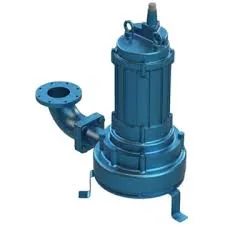English
- Afrikaans
- Albanian
- Amharic
- Arabic
- Armenian
- Azerbaijani
- Basque
- Belarusian
- Bengali
- Bosnian
- Bulgarian
- Catalan
- Cebuano
- Corsican
- Croatian
- Czech
- Danish
- Dutch
- English
- Esperanto
- Estonian
- Finnish
- French
- Frisian
- Galician
- Georgian
- German
- Greek
- Gujarati
- Haitian Creole
- hausa
- hawaiian
- Hebrew
- Hindi
- Miao
- Hungarian
- Icelandic
- igbo
- Indonesian
- irish
- Italian
- Japanese
- Javanese
- Kannada
- kazakh
- Khmer
- Rwandese
- Korean
- Kurdish
- Kyrgyz
- Lao
- Latin
- Latvian
- Lithuanian
- Luxembourgish
- Macedonian
- Malgashi
- Malay
- Malayalam
- Maltese
- Maori
- Marathi
- Mongolian
- Myanmar
- Nepali
- Norwegian
- Norwegian
- Occitan
- Pashto
- Persian
- Polish
- Portuguese
- Punjabi
- Romanian
- Russian
- Samoan
- Scottish Gaelic
- Serbian
- Sesotho
- Shona
- Sindhi
- Sinhala
- Slovak
- Slovenian
- Somali
- Spanish
- Sundanese
- Swahili
- Swedish
- Tagalog
- Tajik
- Tamil
- Tatar
- Telugu
- Thai
- Turkish
- Turkmen
- Ukrainian
- Urdu
- Uighur
- Uzbek
- Vietnamese
- Welsh
- Bantu
- Yiddish
- Yoruba
- Zulu
Telephone: +86 13120555503
Email: frank@cypump.com
Aug . 02, 2024 14:30 Back to list
Innovative Solutions for Efficient Clean Water Pumping Systems for Sustainable Water Management
The Importance of Clean Water Pumps in Ensuring Safe Water Access
Access to clean water is a fundamental human right, yet billions of people around the world still lack reliable sources of safe drinking water. One of the critical technologies that enable communities to access clean water is the water pump. Water pumps play a vital role in drawing water from underground aquifers or surface sources, making it accessible for domestic, agricultural, and industrial purposes. This article explores the significance of clean water pumps, their types, and their impact on global water sustainability.
Understanding Clean Water Pumps
Clean water pumps are specially designed to lift and transfer potable water from one location to another while maintaining its cleanliness and purity. These pumps can be categorized into various types, including hand pumps, electric pumps, solar pumps, and submersible pumps. Each type serves specific needs and is suitable for different environments. For instance, hand pumps are often employed in rural areas where electricity is scarce, while solar-powered pumps are becoming increasingly popular in remote communities, utilizing renewable energy to operate.
The Role of Clean Water Pumps in Communities
The installation of clean water pumps significantly enhances the quality of life in communities. In many developing regions, villagers often rely on contaminated water sources, leading to a high prevalence of waterborne diseases. By providing access to clean water, water pumps help reduce the incidence of illnesses such as cholera, dysentery, and typhoid fever. This improvement in public health is not only beneficial for individuals but also reduces the economic burden on healthcare systems, allowing communities to allocate resources to education, infrastructure, and other essential services.
Moreover, clean water pumps also support agricultural activities. In many rural areas, farmers depend on a consistent water supply for irrigation. By utilizing water pumps, they can access groundwater or surface water, thus enhancing crop yields and improving food security. Additionally, clean water pumps can promote sustainable farming practices by ensuring that irrigation is more efficient and environmentally friendly.
clean water pump

Environmental Considerations
While clean water pumps offer numerous benefits, their implementation must be carried out responsibly. Over-extraction of groundwater can lead to a depletion of aquifers, adversely affecting the local ecosystem. Sustainable water management practices are essential when deploying water pumps to ensure that they do not contribute to long-term environmental degradation. Strategies such as rainwater harvesting, watershed management, and the use of renewable energy sources for powering pumps should be promoted alongside water pump installation.
The Future of Clean Water Access
Technological advancements are paving the way for more efficient and accessible clean water pumps. Innovations such as smart pumps equipped with sensors can monitor water levels and quality, ensuring optimal operation while minimizing waste. Additionally, community-driven initiatives that involve local training and maintenance of water pumps enhance sustainable usage and foster a sense of ownership among the people.
International organizations and governments play a pivotal role in promoting clean water pump initiatives. Collaborative efforts to provide funding, technology transfer, and capacity building are essential to scaling up clean water access, especially in underserved regions. Partnerships between public and private sectors can also create innovative financing models to support the installation and maintenance of clean water pumps.
Conclusion
Clean water pumps are indispensable tools in the quest for safe and accessible water. Their importance in improving public health, fostering agricultural productivity, and supporting sustainable development cannot be overstated. As we move forward, it is crucial to adopt a holistic approach to water management that prioritizes sustainability and community involvement, ensuring that clean water remains a vital resource for generations to come. By investing in clean water pumps and innovative solutions, we can make significant strides toward a world where everyone has access to safe and clean drinking water.
-
ISG Series Vertical Pipeline Pump - Chi Yuan Pumps Co., LTD.|High Efficiency, Energy Conservation, Low Noise
NewsJul.29,2025
-
ISG Series Vertical Pipeline Pump-Chi Yuan Pumps Co., LTD.|High Efficiency&Energy-Saving
NewsJul.29,2025
-
ISG Series Vertical Pipeline Pump - Chi Yuan Pumps Co., LTD. | High Efficiency, Energy-Saving
NewsJul.29,2025
-
ISG Series Pipeline Pump - Chi Yuan Pumps | High Efficiency, Low Noise
NewsJul.29,2025
-
High-Efficiency Vertical Slurry Pumps for Mining & Industry Solutions
NewsJul.29,2025
-
High-Efficiency Pipeline Pump Solutions for Every Pipeline Pump Station
NewsJul.29,2025










